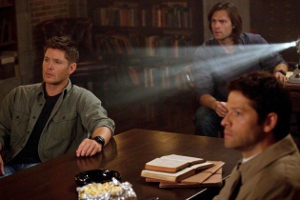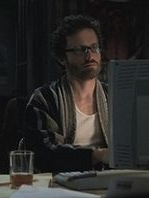Concert After the Fish-Fry
Arvo Pärt's Passio
Sunday, April 9, 2017 10:48 am
I've been listening to Arvo Pärt for quite a while. I'm not sure how I discovered him. He is still alive and still composing. His work, since the 1980s, has been generally focused on the sacred, using chant and polyphony.
I don't know much about music. I know most definitions; I can follow a discussion well enough. But I cannot explain to you the difference between a harmony and a melody — not with understanding. And I cannot distinguish either in a work. I am stupid when it comes to music. Fundamentally I am sub-intellectual. For me, a musical work is either a good noise or it's disposable.
I don't know much about music. I know most definitions; I can follow a discussion well enough. But I cannot explain to you the difference between a harmony and a melody — not with understanding. And I cannot distinguish either in a work. I am stupid when it comes to music. Fundamentally I am sub-intellectual. For me, a musical work is either a good noise or it's disposable.
Flea Markets. In Spaaace!
The Peculiar Novel Quarter Share
Monday, March 13, 2017 1:16 pm
It's been difficult to find a good SF novel. Most, these days, are beset with SJW imbecility. But I keep trying the samples at Amazon. Once in a while a sample is good enough to prompt me to say, "What the heck, I'll finish this one." Quarter Share by Nathan Lowell was my latest choice.
But like pretty much all the books I have obtained hopefully after a decent-enough sample, QS has proven to be...
But like pretty much all the books I have obtained hopefully after a decent-enough sample, QS has proven to be...
It Doesn't Give You Cooties
Use the Proper Pronouns
Friday, March 10, 2017 3:58 pm
I enjoy Jim Gaffigan, the comedian. Yes, once you've watched his specials repeatedly, you see the patterns in his subject matter. But I enjoy him a lot.
During one bit he says this as a prelude to the main joke:
You can argue that language changes. So, yes, the loss of the generic "he" is leading to a loss, too, of sex-specificity in pronouns, at least for abstract males and females. So language happens. Language is what people speak. But it is truly a loss when a "woman" is no longer a "she" but is just another "they."
Anyhow, resist this nonsense. If you can't bring yourself to use the generic "he" when the sex is unspecified (and if you can't, you're silly), at least use the sex-specific pronoun that is appropriate to a subject that is clearly male or female.
During one bit he says this as a prelude to the main joke:
A woman can grow a baby inside their body. And then somehow a woman can deliver a baby through their body. And then by some miracle a woman can feed a baby with their body."Their"? I know he is speaking as we have all been forced to speak. But even when the sex of the person in question is quite known and unavoidable, he can not say "her." Again, this is commonplace these days. But what is really sad is that no part of him cringes; no part of him recognizes the hideous solecism.
You can argue that language changes. So, yes, the loss of the generic "he" is leading to a loss, too, of sex-specificity in pronouns, at least for abstract males and females. So language happens. Language is what people speak. But it is truly a loss when a "woman" is no longer a "she" but is just another "they."
Anyhow, resist this nonsense. If you can't bring yourself to use the generic "he" when the sex is unspecified (and if you can't, you're silly), at least use the sex-specific pronoun that is appropriate to a subject that is clearly male or female.
Superfluous in Heaven
Even Sacred Music Is Mundane
Saturday, February 4, 2017 12:36 am
In the mid '80s, when I was a college boy, I regularly went to the record stores near campus. This was just before CDs and long before MP3s. You wanted music, you flipped through an alphabetized bin and found an LP. Anyhow, one day, while I was browsing for something new, a classical work of some sort started playing on the store stereo. It was beautiful and unfamiliar. I listened for quite a while. I finally asked the clerk what it was. He showed me the sleeve and I went to the proper bin. The LP was in stock. I bought it.
You Do Not Come Disassembled
A Thought About the Self
Friday, January 27, 2017 3:19 pm
The person who bristles at being labeled is being childish. You are not a special snowflake; you are always a member of some category. The only matter with a label is its accuracy.
Call me a Thomist and you would be right. More to the point, presume that my metaphysical ruminations hardly originate with me. I'm not trying to break ground, here; I'm sharing an understanding that I have acquired.
Call me a Thomist and you would be right. More to the point, presume that my metaphysical ruminations hardly originate with me. I'm not trying to break ground, here; I'm sharing an understanding that I have acquired.
Just Another Guy
 Generally I like what Supernatural does with Biblical mythology. Mind you, the writers are only scraping the mythology. They never explore the actual point of this or that story, but only steal from the cultural detritus of a society once Christian, re-purposing folktales they once half-heard in Sunday school.
Generally I like what Supernatural does with Biblical mythology. Mind you, the writers are only scraping the mythology. They never explore the actual point of this or that story, but only steal from the cultural detritus of a society once Christian, re-purposing folktales they once half-heard in Sunday school.
Take, for example, the arc about the Darkness and the Mark of Cain.
Beware! Spoilers follow.
God in Supernatural
Monday, January 23, 2017 8:00 pm

Take, for example, the arc about the Darkness and the Mark of Cain.
Beware! Spoilers follow.
Peekaboo
Added to the Library at Speculative Faith
Sunday, January 15, 2017 2:25 pm
My book The Giant's Walk has been added to the library at Speculative Faith. Click here. For the time being, at least, my book is also showing up (with others) on their front page. I invited myself to their library, but they have been kind enough to let me in. Thank you, Speculative Faith.
© 2004-25 David Skinner · All rights reserved
